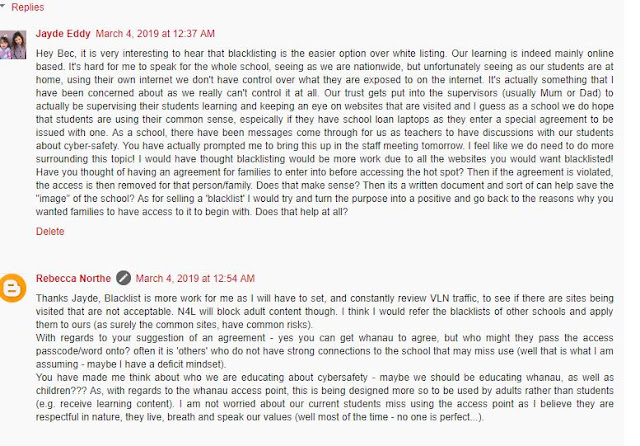Week 17
Your Spiral of Inquiry
These 16 weeks are structured around one cycle of the Spiral of Inquiry model (Timperley, Kaser & Halbert, 2014). However, please note the Spiral of Inquiry is meant to be a continuing process, the end of this cycle of the spiral may open up a new cycle. Timewise, we try to fit the 2 courses into one cycle of the spiral of inquiry. Therefore, depending on your context, your inquiry should be carefully considered in terms of its scope so that you can carry out the inquiry within the 16-week time frame. It is not practical to do a full inquiry cycle in 16 weeks at the level of detail that you normally would in your practice. We do believe that going through each step of the cycle quickly can be a valuable first step.Action Plan Template
Annotated Bibliography
Research Essay Template
Using your e-Portfolio
Although e-Portfolios are often used for assessment or to showcase finished work, in this programme we use developmental (e.g., working) portfolios. We don’t assess your e-Portfolio, we simply recommend using one to integrate all your work on the online courses. With that in mind, we recommend that while reading through the class notes, when there is a suggestion for you to write down some key ideas, you add those to a page in your e-Portfolio. You can revisit/add and elaborate more on these notes until you are ready to finalise your assignment work in your copies of the Research Essay or Action Plan. You don’t need to hand in any notes you add to your e-Portfolio. Only submit the Research Essay (RESEARCH 1) and Action Plan (RESEARCH) together with the evidence of online participation for the assessments.Metatopic Idea:
- Gamification in Leadership? Agency and Engagement?
Topic Ideas:
- How can using ClassDojo (gamification) increase the level of engagement of Year 9 and 10 distance learners?
Scanning the Needs of Your Community(ies)
Have sent a Google form to students and supervisors to collect anonymous feedback regarding online learning.
Tino Rangatiratanga - the self-determination principle and Taonga tuku iho - the cultural aspirations principle
- What relevance does the topic of interest have to your Māori students?
I think that my topic has a high relevance for Māori students as my roll is predominantly NZ Māori and as they have come to us also predominantly from negative educational experiences it is now up to us to engage, inspire and get these students actively participating in their education again. My choice of using gamification elements is my starting point of trying to make it fun and making connections to my students with fun. 'Mana motuhake'- they are in control of the points that they are getting.
- Have you taken into account the ways your students think, understand, interact and interpret the topic of interest? How would you know?
Yes, I have taken into account how they think and interact and is the reason why I chose to do gamification elements to make things fun. I know for certain now as I have sent a survey out to my students to get their feedback on distance learning and got a 100% response back for using points and levels.
Snips of Feedback from Week 17 Discussions




Comments
Post a Comment